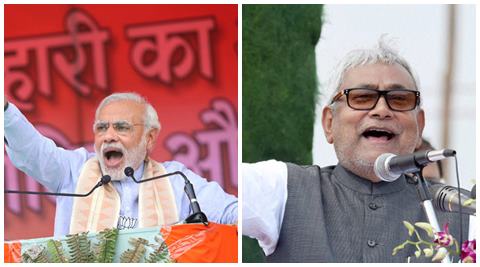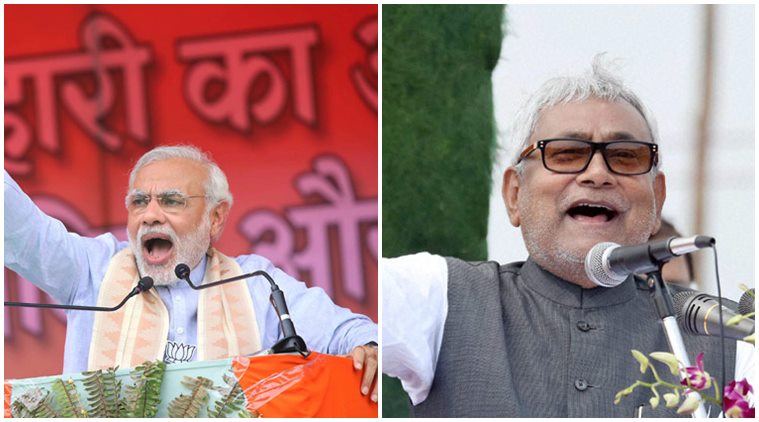Opinion Unsettled dust
After a bitter and polarising campaign for Bihar, some uncomfortable questions linger.

 The campaign for Bihar had begun on an angry, personal note, with Prime Minister Narendra Modi speaking of Nitish Kumar’s “backstabbing” and making what could be construed as a rude comment on his DNA.
The campaign for Bihar had begun on an angry, personal note, with Prime Minister Narendra Modi speaking of Nitish Kumar’s “backstabbing” and making what could be construed as a rude comment on his DNA.
The campaign for Bihar had begun on an angry, personal note, with Prime Minister Narendra Modi speaking of Nitish Kumar’s “backstabbing” and making what could be construed as a rude comment on his DNA. But in that same speech at Muzaffarpur in July, the PM also spoke of the possibilities of a second agricultural revolution in Bihar, of the necessity for greater access to electricity and a comprehensive gas grid.
More than three months later, as the campaign wound up this week, the personal barbs remained while the political high ground had drastically shrunk and caste and community spectre-mongering was lavishly added to the mix. At campaign’s end, what was also clear was this: While both sides, the Mahagathbandhan and the NDA, used fair means and foul, the prime minister led from the front in giving the battle for Bihar, particularly in its last stages, an especially bitter edge.
Wrapping up his campaign for Bihar, the PM referred to the “Darbhanga module”. Did the people want a “government in Patna that protects terrorists” and “those exploding bombs”, he asked. In earlier speeches, he had warned voters that the leading lights of the Mahagathbandhan were conspiring to snatch a percentage of the jobs quota from Dalits and Extremely Backward Classes and give it to a “certain community”, misrepresenting what Nitish Kumar had said on the matter in Parliament in August 2005.
Through the campaign, the PM also had no compunction in presenting himself as a leader of the EBCs, or in addressing specific caste groupings like the “Yaduvanshis”. His party took its cue from the PM. In Raxaul, BJP chief Amit Shah said that should the BJP lose Bihar, there would be celebratory fireworks in Pakistan, stoking a familiar canard — of all opposition to the BJP being anti-national. And on the eve of the voting in the last phase, BJP advertisements in Bihar newspapers pictured a woman tenderly hugging a cow with a message berating Nitish Kumar’s silence on his allies’ statements, allegedly insensitive to Hindus, on beef.
Long after the noise has died down, and Bihar has been won and lost, there will be discomfiting questions. Does such a fierce and gritty, no holds barred, engagement of a prime minister in a state election, affect the essential poise, impartiality and dignity of his office? The prime minister is also a leader of the ruling party, the electoral cycle in India can be unrelenting, and the media is an unsparing amplifier. With a spate of important assembly elections due next year, including in West Bengal and Assam, is it possible to find ways of ensuring that the heat from a polarising battle in one state does not unduly singe an office that must always, and at all times, encompass and reach out to the nation, and be seen to do so too? These are political, not legal, questions. The search for answers calls for wisdom and judgement.


